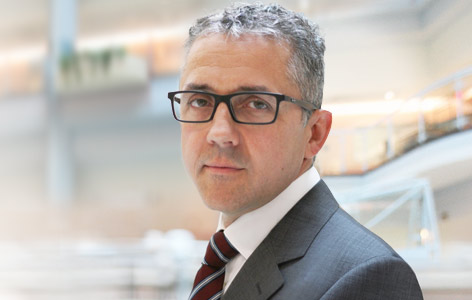
Following an international search that attracted a very strong field of candidates, Dr. Bradly Wouters has been appointed the Executive Vice President, Science and Research. He will take on the new role as of October 1, 2016.
Dr. Wouters is well known throughout UHN, having served as interim Director of Research at Princess Margaret since 2014. He joined UHN as a Senior Scientist in 2008 from Europe where he was Professor and Director of the Radiation Oncology Research Department at Maastricht University in the Netherlands.
His research program is focused on understanding the influence of hypoxia and the tumour microenvironment on cell signalling and poor patient prognosis in pancreatic, breast, brain, and head and neck cancers. His laboratory is also investigating several approaches to translate this knowledge to develop effective, personalized approaches to treatment. To date he has published over 155 lifetime papers that have been cited more than 9,400 times. In addition he has filed four patents and his research has led in part to the formation of Northern Biologics—a spin-out company that develops antibody-based therapeutics for cancer and other chronic diseases.
Dr. Wouters has received a number of awards in recognition of his accomplishments, including the University of Toronto's Excellence in Research Leadership Award, the ESTRO Klaas Breur Gold Medal Award, the Michael Fry Research Award from the Radiation Research Society, the Premier's Research Excellence Award from the Province of Ontario and the Polyani Prize in Medicine from the Government of Ontario.
“It was critical to the Search Committee that the successful candidate has a strong record of scientific publications and ongoing success with grant funding to support his work. Brad's career is exemplary in both regards,” explains Dr. Peter Pisters. “His knowledge of our research culture and the strengths of his fellow scientists will make this a smooth transition for UHN.”




